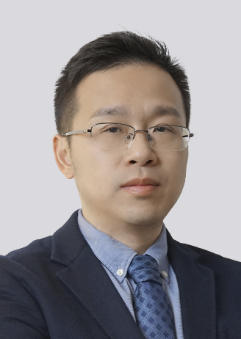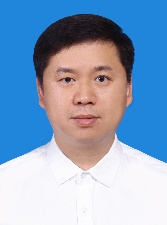Speaker: Mo-Yuen Chow, Shanghai Jiao Tong University, China
Title: Disaster Relief Empowerment through Collaborative Distributed Control of Energy Resources
 Abstract: Maintaining reliable and stable power supplies is a significant challenge in a world frequently struck by natural disasters, ranging from severe hurricanes to unforeseen earthquakes. These calamities have a severe negative impact on the electrical grid, leading to power outages that paralyze daily life and hinder crucial rescue efforts, potentially leading to further casualties. Thus, the swift restoration of electricity emerges as a paramount task in the multifaceted arena of disaster response. Traditionally, this has involved making emergency repairs to central utility grids or deploying mobile power units to essential services like hospitals. However, these methods can be hindered by damaged infrastructure, limited resources, and difficult terrain. Emerging technologies, such as UAVs, AI, and distributed energy resources (DERs), offer new possibilities. This scenario requires a more dynamic, efficient, adaptable and systematic solution for flexibility, rapid response, and efficient coordination. This presentation will discuss research and technologies integrating distributed energy sources into the grid through Networked Microgrids (NMG) using a dynamic energy management framework. It will cover the work on Dynamic Collaborative Distributed Energy Management Systems by the ADAC research lab, the software and hardware-in-loop development, and introduce the initiatives of the Yangtze Delta Energy Management Systems Consortium Plus (YD-EMSC+).1
Abstract: Maintaining reliable and stable power supplies is a significant challenge in a world frequently struck by natural disasters, ranging from severe hurricanes to unforeseen earthquakes. These calamities have a severe negative impact on the electrical grid, leading to power outages that paralyze daily life and hinder crucial rescue efforts, potentially leading to further casualties. Thus, the swift restoration of electricity emerges as a paramount task in the multifaceted arena of disaster response. Traditionally, this has involved making emergency repairs to central utility grids or deploying mobile power units to essential services like hospitals. However, these methods can be hindered by damaged infrastructure, limited resources, and difficult terrain. Emerging technologies, such as UAVs, AI, and distributed energy resources (DERs), offer new possibilities. This scenario requires a more dynamic, efficient, adaptable and systematic solution for flexibility, rapid response, and efficient coordination. This presentation will discuss research and technologies integrating distributed energy sources into the grid through Networked Microgrids (NMG) using a dynamic energy management framework. It will cover the work on Dynamic Collaborative Distributed Energy Management Systems by the ADAC research lab, the software and hardware-in-loop development, and introduce the initiatives of the Yangtze Delta Energy Management Systems Consortium Plus (YD-EMSC+).1
Biography: Mo-Yuen Chow earned his degree in Electrical and Computer Engineering from the University of Wisconsin-Madison (B.S., 1982); and Cornell University (M. Eng., 1983; Ph.D., 1987). Dr. Chow joined as a Professor at UM-Shanghai Jiao Tong University Joint Institute in 2022. He was a Professor in the Department of Electrical and Computer Engineering at North Carolina State University.
Dr. Chow’s recent research focuses on distributed control and management, smart micro-grids, batteries management, and mechatronics systems. Dr. Chow has established the Advanced Diagnosis, Automation, and Control Laboratory. He is an IEEE Fellow, the Co-Editor-in-Chief of IEEE Trans. on Industrial Informatics 2014-2018, Editor-in-Chief of IEEE Transactions on Industrial Electronics 2010-2012. He has received the IEEE Region-3 Joseph M. Biedenbach Outstanding Engineering Educator Award, the IEEE ENCS Outstanding Engineering Educator Award, the IEEE ENCS Service Award, the IEEE Industrial Electronics Society Anthony J Hornfeck Service Award, and the IEEE Industrial Electronics Society Dr.-Ing. Eugene Mittelmann Achievement Award. He is a Distinguished Lecturer of IEEE Industrial Electronics Society.
Speaker: Ming Yang, Shanghai Jiao Tong University, China
Title: Learning models and evaluation framework for low-speed autonomous driving
Abstract: Driving decisions are the key to autonomous driving systems. Low-speed tasks such as unmanned logistics, unmanned buses, autonomous parking, and vehicle following all rely on decision algorithms. However, currently implemented algorithms are typically based on explicit rules and thresholds, which lack flexibility and robustness. Consequently, these algorithms cannot handle highly dynamic and highly interactive low-speed traffic scenarios. In order to enhance the decision-making model's ability to cope with complex scenarios, many researchers in this field are exploring data-driven learning models. These models utilize a large amount of data input to enable to autonomously mine key data features required for decision-making. To ensure the convergence of the learning process, solutions methods such as input data dimensionality reduction and loss function design have been proposed. Learning models may misinterpret data distribution biases as data features, but this problem can be effectively alleviated through priority sampling mechanisms and adversarial learning architectures. In the process of optimizing driving decision models, evaluating the effectiveness of the model is also a key point. In order to support diverse traffic scenario testing samples and improve the quality of trajectory data samples, existing open-source datasets and data formats were organized and data texture analysis was conducted. Based on trajectory features, scene instances were graded in difficulty, and a data-driven approach was adopted to enhance the interactivity of traffic participants in traffic scenarios. These efforts aim to establish more realistic and diverse testing benchmarks that combine virtual and real scenarios to  comprehensively evaluate the performance of driving decision models.
comprehensively evaluate the performance of driving decision models.
Biography: Ming Yang is Distinguished Professor at Shanghai Jiao Tong University. He is a recipient of Bao Gang Outstanding Teacher Award. He obtained his doctoral degree from Tsinghua University in 2003. He joine Shanghai Jiao Tong University in 2005. He has served as the Secretary/Director of the Department of Automation, the Secretary/Acting Dean of the Party Committee of the UM Joint Institute. He is currently the Secretary of the Party Committee of the Joint Institute, Director of the Innovation Center for Intelligent Connected Electric Vehicles. He is the Deputy Director of the Teaching Committee of the China Association for Automation, Director of the China Association for Artificial Intelligence, and Deputy Director of the Intelligent Robotics Committee. He is also the Associate Editor for IEEE IROS-CPRB, IEEE Transactions on Intelligent Vehicles, and IEEE Transactions on Intelligent Transportation Systems. He has been engaged in teaching and research in unmanned vehicles and intelligent robots for a long time. He published more than 200 papers in domestic and international academic journals and has more than 50 national invention patents. His students have been awarded excellent papers on top domestic and international conferences such as IEEE Intelligent Vehicle Symposium and China Intelligent Robotics Conference. His team was awarded the first prize of Shanghai Technology Invention Award, Shanghai Teaching Achievement Award, Ministry of Education Technology Invention Award, etc.
Speaker:Yang Tang, East China University of Science and Technology
Title: Intelligent optimization and decision-making for multi-agent systems
Abstract: At present, multi-agent systems are developing rapidly, showing enormous potential in areas such as energy resources and economic management. This report discusses the intelligent optimization and game decision-making problems of cluster systems, respectively, from two parts: distributed optimization and decision-making. Optimization considers three parts: distributed optimization, identification of key nodes, and optimization based on data-driven methods. In the case of considering asynchronous computation, communication burden of distributed optimization is reduced through event-triggered mechanisms, while also considering the identification of key nodes that play a dominant role in large-scale multi-agent systems. Considering the existence of uncertainty and inexplainability in the system, this report also explores how to optimize data-driven approaches. Multi-agent systems for games include analytical games and reinforcement learning-based games. Analytical games construct game models among cluster members through mathematical analysis to solve strategies, while reinforcement learning-based games emphasize solving game strategies using deep learning methods.
 Biography: Yang Tang (Fellow, IEEE) received the B.S. and Ph.D. degrees in electrical engineering from Donghua University, Shanghai, China, in 2006 and 2010, respectively. From 2008 to 2010, he was a Research Associate with The Hong Kong Polytechnic University, Hong Kong. From 2011 to 2015, he was a Post-Doctoral Researcher with the Humboldt University of Berlin, Berlin, Germany, and with the Potsdam Institute for Climate Impact Research, Potsdam, Germany. He is now a Professor with the East China University of Science and Technology, Shanghai. His current research interests include distributed estimation/control/optimization, computer vision, reinforcement learning, cyber-physical systems, hybrid dynamical systems, and their applications.
Biography: Yang Tang (Fellow, IEEE) received the B.S. and Ph.D. degrees in electrical engineering from Donghua University, Shanghai, China, in 2006 and 2010, respectively. From 2008 to 2010, he was a Research Associate with The Hong Kong Polytechnic University, Hong Kong. From 2011 to 2015, he was a Post-Doctoral Researcher with the Humboldt University of Berlin, Berlin, Germany, and with the Potsdam Institute for Climate Impact Research, Potsdam, Germany. He is now a Professor with the East China University of Science and Technology, Shanghai. His current research interests include distributed estimation/control/optimization, computer vision, reinforcement learning, cyber-physical systems, hybrid dynamical systems, and their applications.
Prof. Tang is an IEEE Fellow. He was a recipient of the Alexander von Humboldt Fellowship. He is an Associate Editor of IEEE Transactions on Neural Networks and Learning Systems, IEEE Transactions on Cybernetics, IEEE Transactions on Industrial Informatics, IEEE/ASME Transactions on Mechatronics, IEEE Transactions on Circuits and Systems-I: Regular Papers, IEEE Transactions on Cognitive and Developmental Systems, IEEE Transactions on Emerging Topics in Computational Intelligence, IEEE Systems Journal, Engineering Applications of Artificial Intelligence (IFAC Journal) and Science China Information Sciences, etc. He has published more than 200 papers in international journals and conferences, including more than 110 papers in IEEE Transactions and 20 papers in IFAC journals. He has been awarded as best/outstanding Associate Editor in IEEE journals for four times. He is a (leading) guest editor for several special issues focusing on autonomous systems, robotics, and industrial intelligence in IEEE Transactions.
Speaker:Bin Zhou, Harbin Institute of Technology, China
Title:Prescribed time control based on the periodic delayed sliding mode surface without singularities
 Abstract: In this talk, nonsingular prescribed-time control is studied based on periodic delayed sliding mode surfaces. Different from the existing sliding mode control, where either singularity problems may appear or the convergence time depends on the initial state, the proposed sliding mode control approaches can achieve prescribed-time convergence without singularity. The proposed nonsingular sliding mode control approaches can be applied to both second-order and high-order nonlinear systems with prescribed-time convergence. As applications of the proposed sliding mode control approaches, the control of hypersonic vehicle systems is revisited. Numerical simulations on the nonlinear model of the hypersonic vehicle system show the effectiveness of the proposed methods.
Abstract: In this talk, nonsingular prescribed-time control is studied based on periodic delayed sliding mode surfaces. Different from the existing sliding mode control, where either singularity problems may appear or the convergence time depends on the initial state, the proposed sliding mode control approaches can achieve prescribed-time convergence without singularity. The proposed nonsingular sliding mode control approaches can be applied to both second-order and high-order nonlinear systems with prescribed-time convergence. As applications of the proposed sliding mode control approaches, the control of hypersonic vehicle systems is revisited. Numerical simulations on the nonlinear model of the hypersonic vehicle system show the effectiveness of the proposed methods.
Biography: Bin Zhou is a Professor of the Department of Control Science and Engineering at the Harbin Institute of Technology. He received the Bachelor’s degree, the Master’s Degree and the Ph.D. degree from the Department of Control Science and Engineering at Harbin Institute of Technology, Harbin, China in 2004, 2006 and 2010, respectively. His current research interests include time-delay systems, time-varying systems, nonlinear control, multi-agent systems, and control applications in astronautic engineering. He received the National Excellent Doctoral Dissertation Award in 2012 from the Ministry of Education of P.R. China, and was granted the China National Funds for Distinguished Young Scientists on 2021. He is currently an Associate Editor of Automatica, IEEE Transactions on Aerospace and Electronic Systems, IEEE Transactions on Systems, Man and Cybernetics: Systems, European Journal of Control, IET Control Theory & Applications, and Asian Journal of Control.